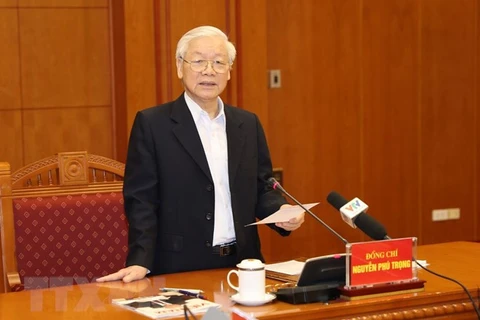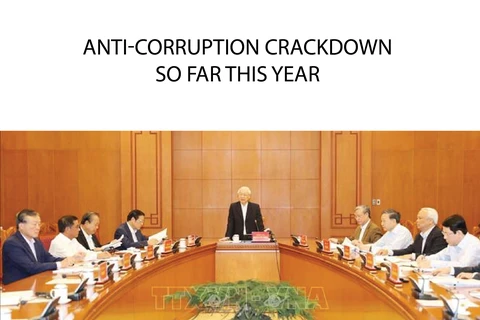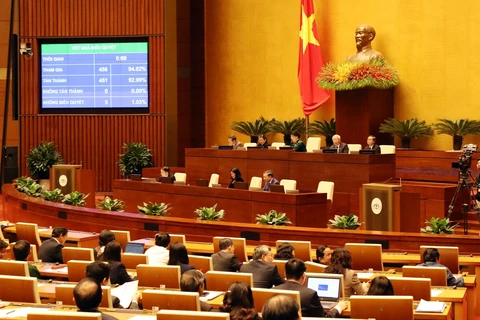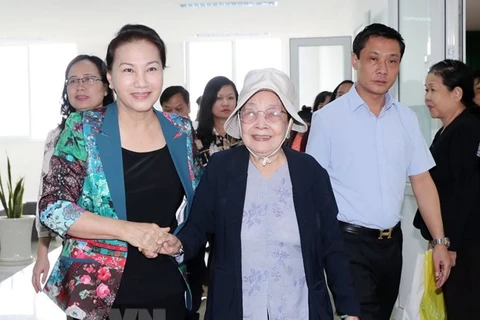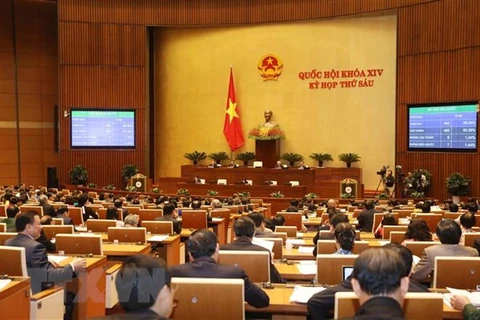Hanoi (VNA) – A United Nations expert has praised the Vietnamese Government and the Government Inspectorate (GI) for their efforts in amending the Anti-Corruption Law.
Francesco Checchi, Anti-Corruption Adviser of United Nations Office on Drugs and Crime (UNODC) Southeast Asia and the Pacific, said at a seminar on anti-corruption held in Hanoi on December 20 that Vietnam’s ratification of the United Nations Convention against Corruption (UNCAC) in 2009 exemplified the country’s strong commitment to the anti-corruption cause.
Since that time, Vietnam has witnessed positive changes in constitutional completion and UNCAC implementation, he said, adding that most notably, the National Assembly recently passed a new Anti-Corruption Law.
He also hailed Vietnam for completing the national self-assessment checklist on UNCAC implementation for the second cycle.
The UN expert proposed the Vietnamese Government create optimal conditions for social organisations, businesses, and the press to effectively engage in the UNCAC Review Mechanism.
According to Francesco Checchi, each year, about 1 trillion USD is misused for bribery and 2.6 trillion USD is stolen through corruption, equivalent to 5 percent of the world’s gross domestic product (GDP).
He added that corruption poses greatest obstacles to global socio-economic development.
Speaking at the seminar, Deputy Inspector General Tran Ngoc Liem said that the event aims to offer updates on the outcomes of UNCAC implementation in Vietnam, including the results of the second round’s report, and introduce the recently-approved 2018 Anti-Corruption Law.
He voiced his belief that following the seminar, a close and complete legal corridor will be established, boosting the effectiveness of anti-corruption activities towards the building of a democratic, equal, civilised, stable, and thriving society. –VNA
Francesco Checchi, Anti-Corruption Adviser of United Nations Office on Drugs and Crime (UNODC) Southeast Asia and the Pacific, said at a seminar on anti-corruption held in Hanoi on December 20 that Vietnam’s ratification of the United Nations Convention against Corruption (UNCAC) in 2009 exemplified the country’s strong commitment to the anti-corruption cause.
Since that time, Vietnam has witnessed positive changes in constitutional completion and UNCAC implementation, he said, adding that most notably, the National Assembly recently passed a new Anti-Corruption Law.
He also hailed Vietnam for completing the national self-assessment checklist on UNCAC implementation for the second cycle.
The UN expert proposed the Vietnamese Government create optimal conditions for social organisations, businesses, and the press to effectively engage in the UNCAC Review Mechanism.
According to Francesco Checchi, each year, about 1 trillion USD is misused for bribery and 2.6 trillion USD is stolen through corruption, equivalent to 5 percent of the world’s gross domestic product (GDP).
He added that corruption poses greatest obstacles to global socio-economic development.
Speaking at the seminar, Deputy Inspector General Tran Ngoc Liem said that the event aims to offer updates on the outcomes of UNCAC implementation in Vietnam, including the results of the second round’s report, and introduce the recently-approved 2018 Anti-Corruption Law.
He voiced his belief that following the seminar, a close and complete legal corridor will be established, boosting the effectiveness of anti-corruption activities towards the building of a democratic, equal, civilised, stable, and thriving society. –VNA
VNA

